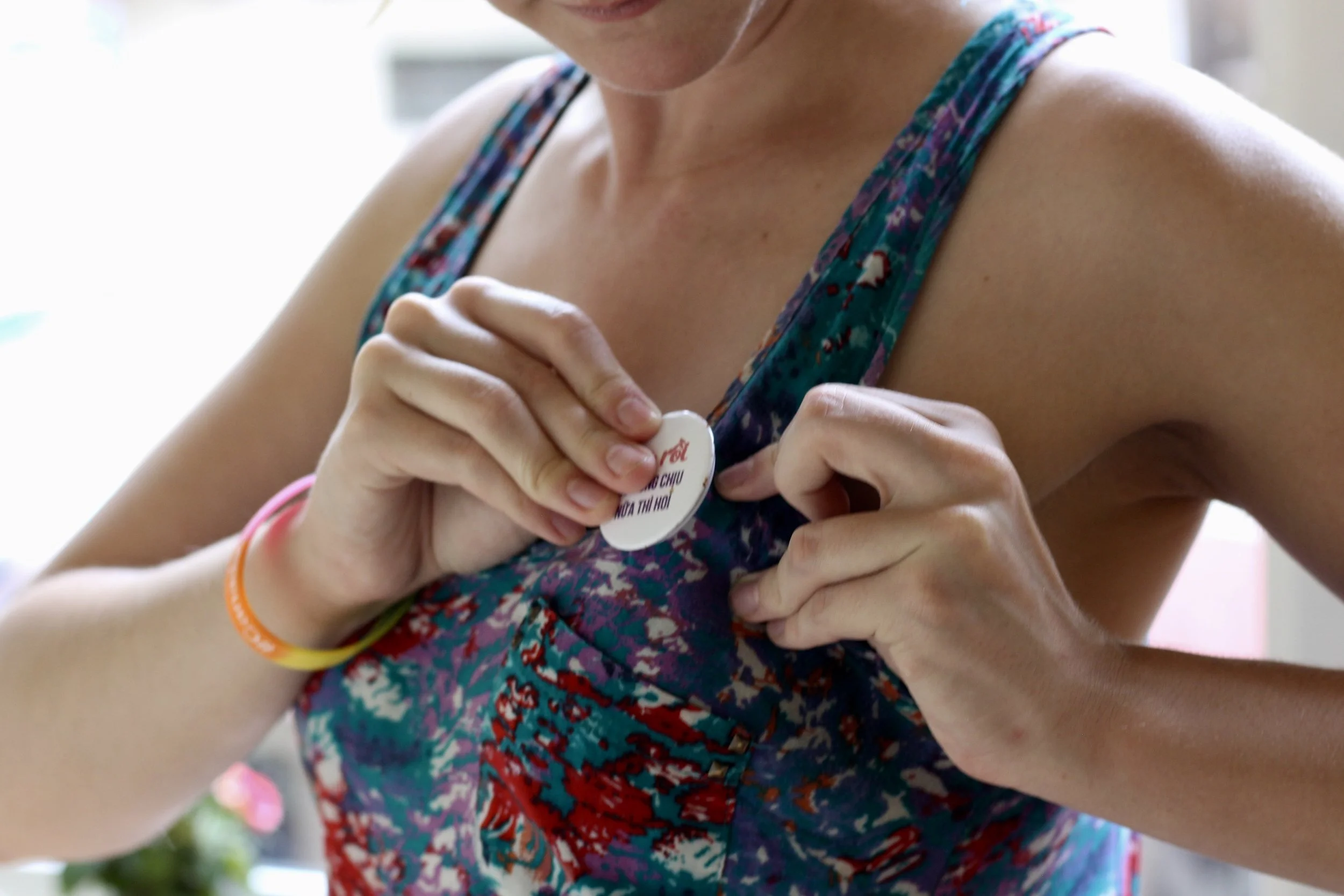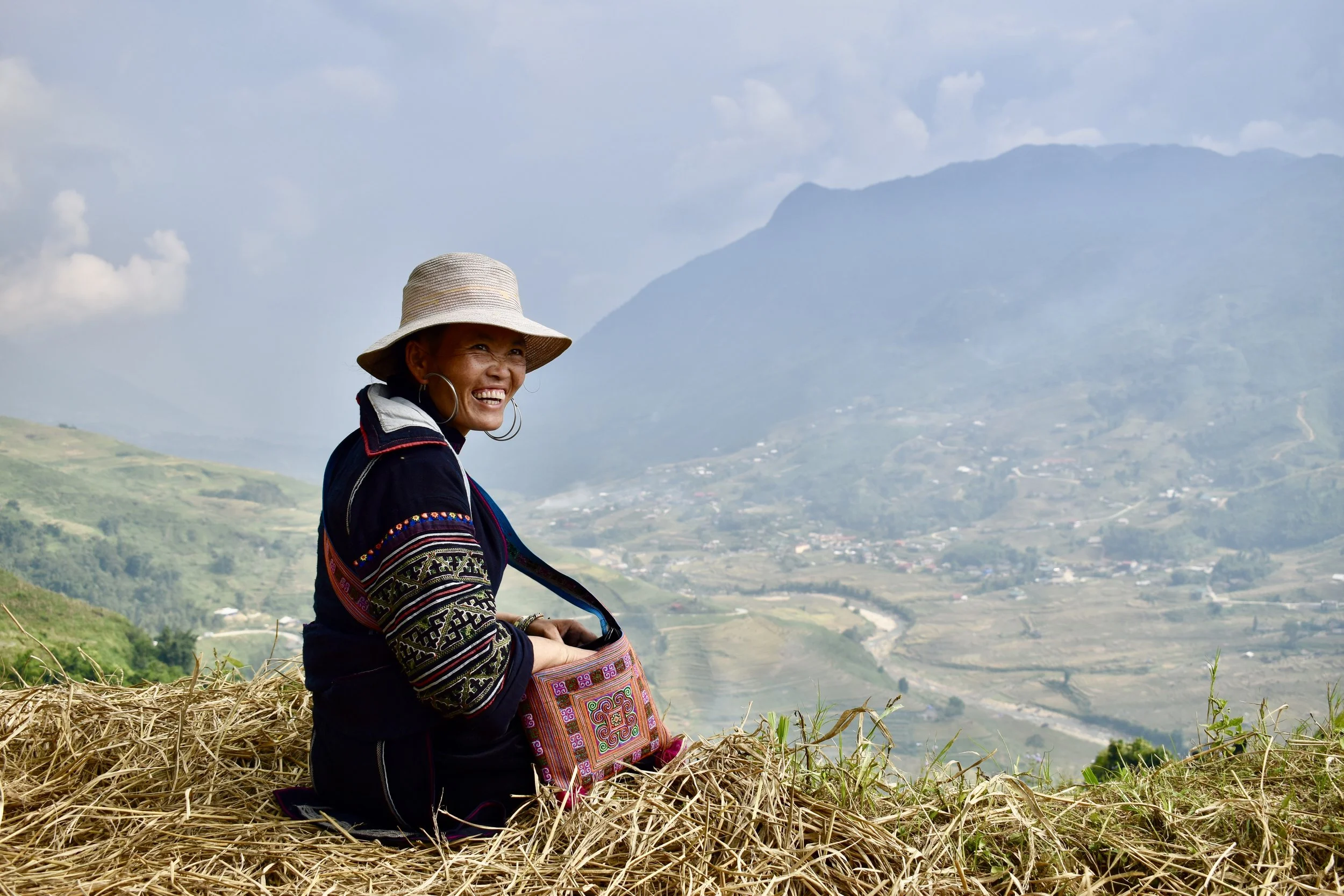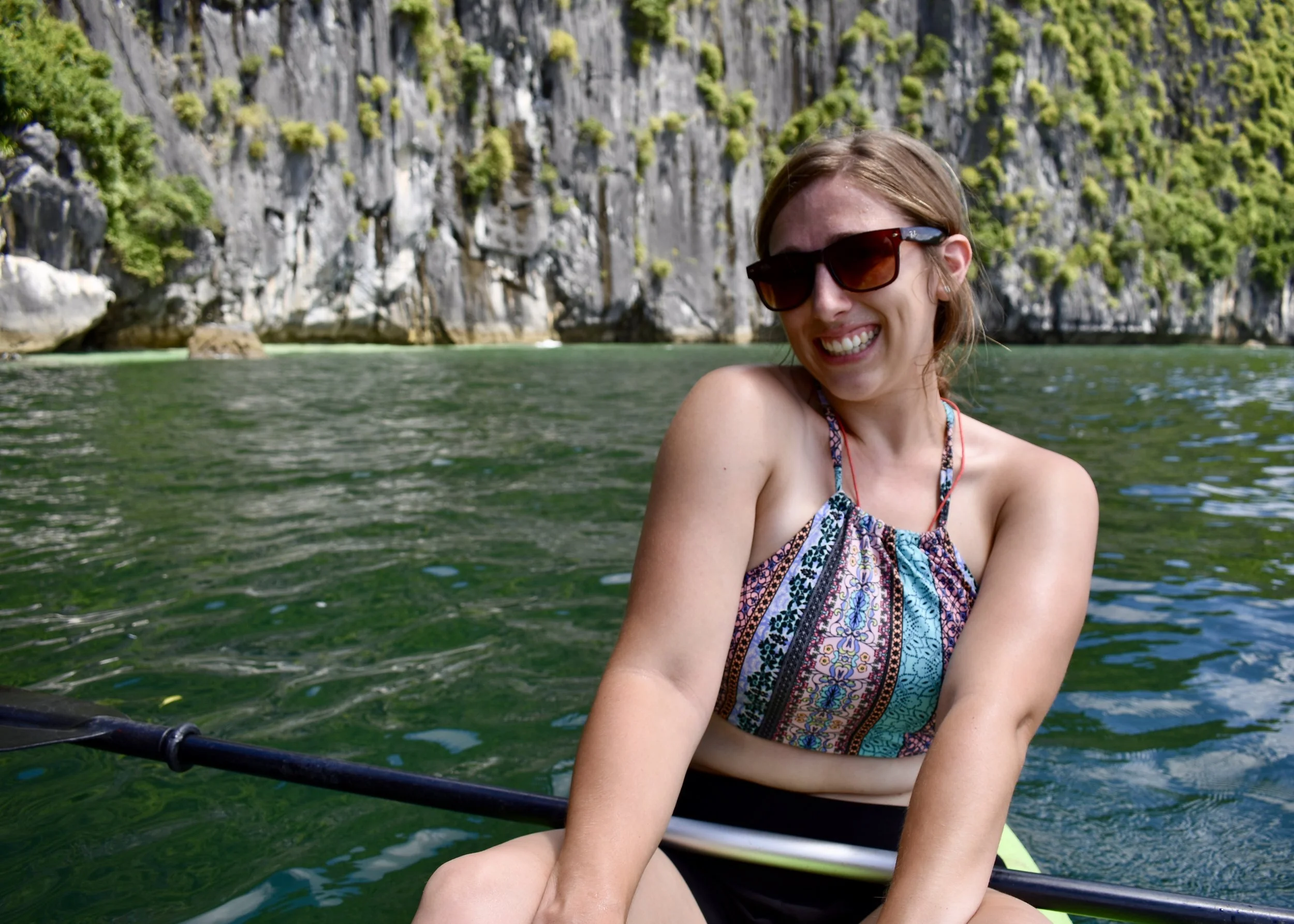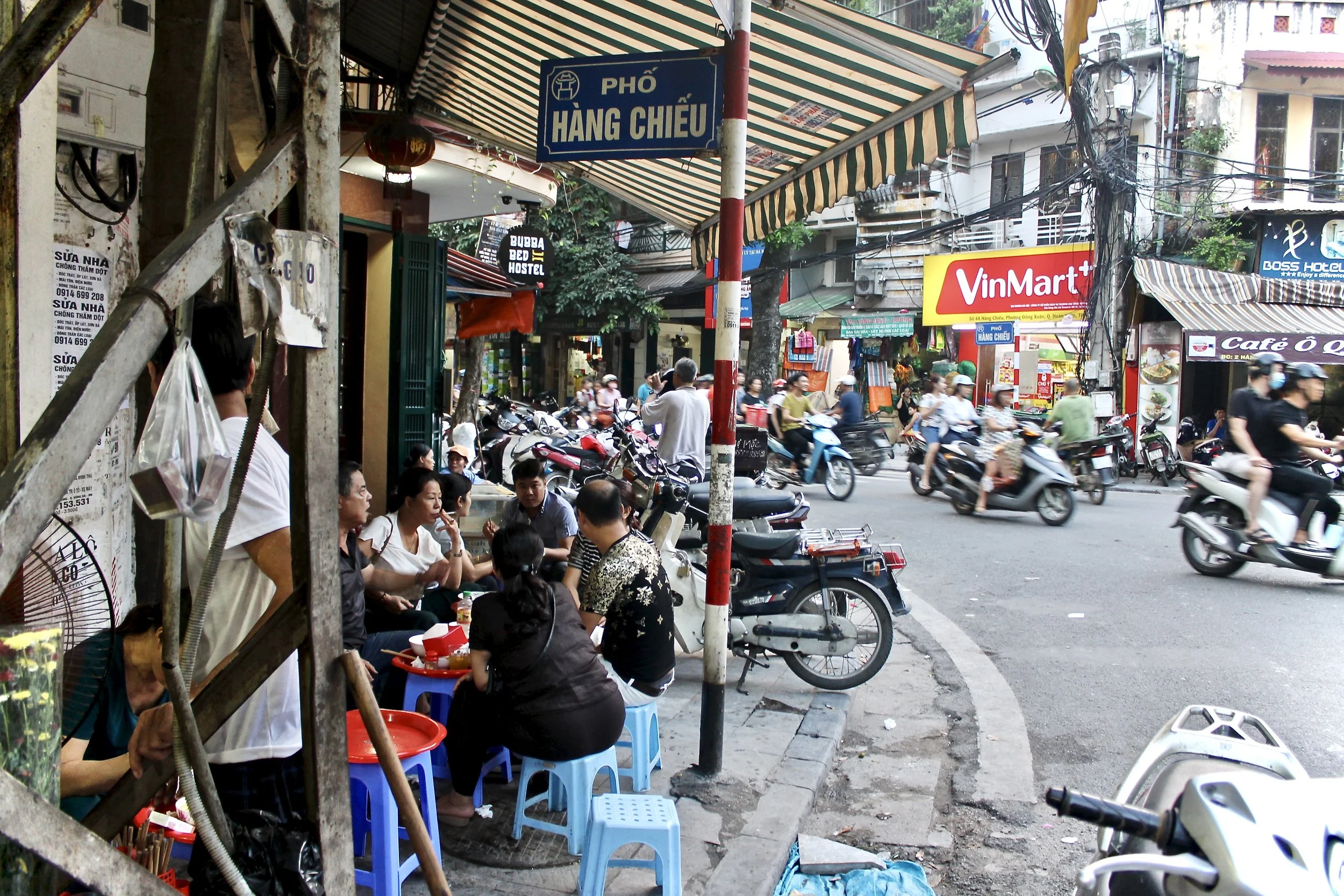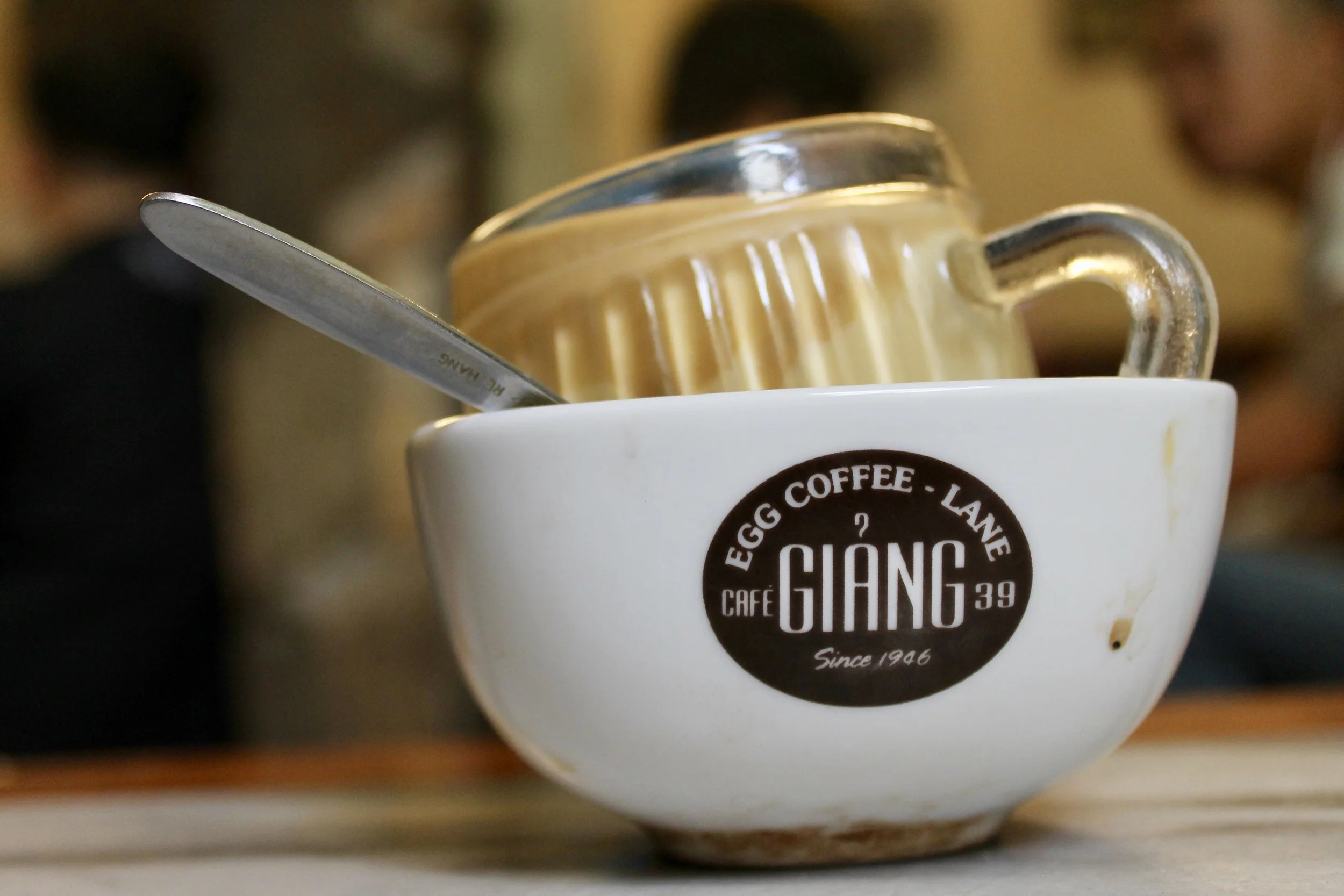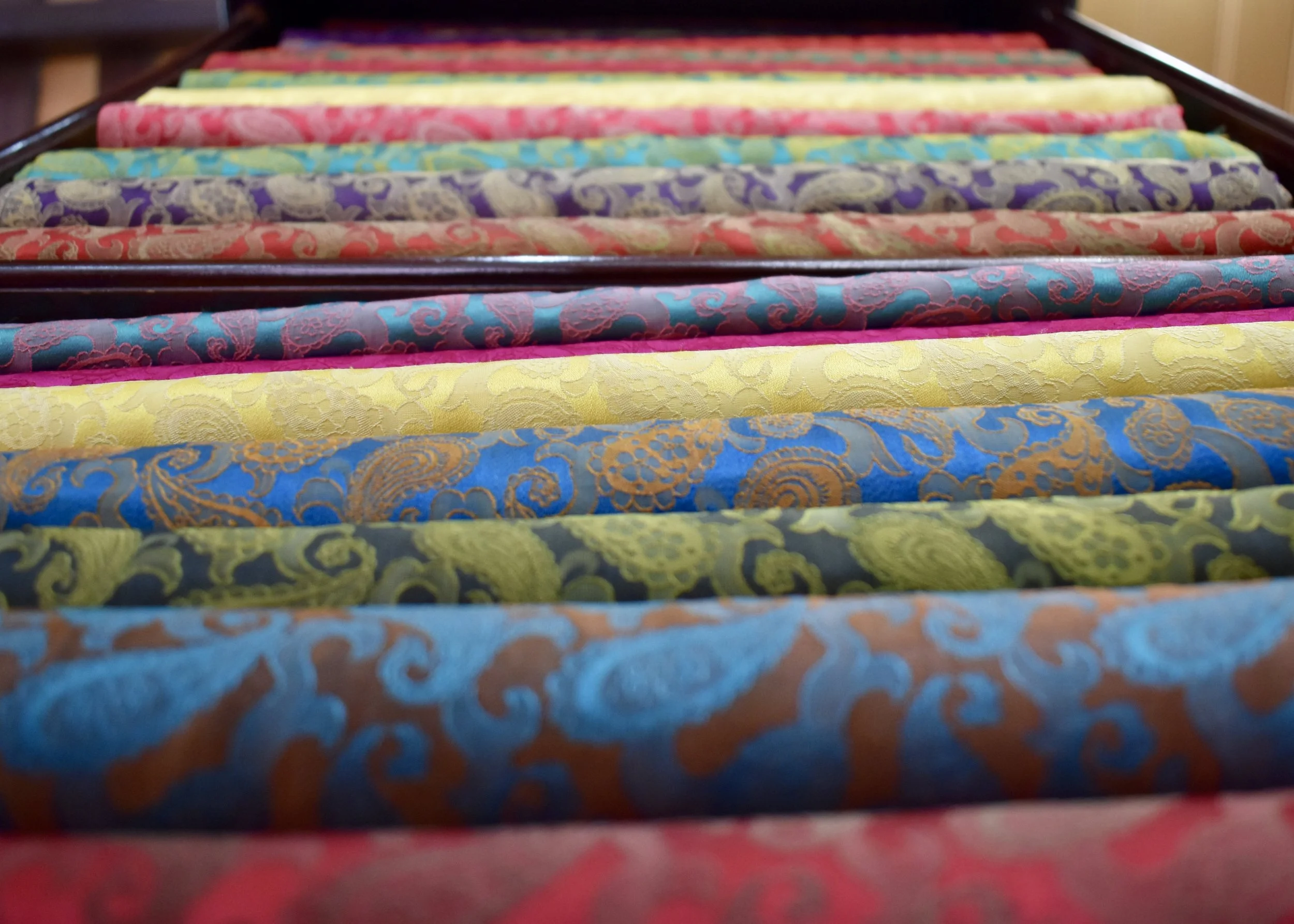10 Questions with a Foreign Service Officer-in-Training in Vietnam
Elizabeth*, 24, works in the political branch of a Western country's embassy in Hanoi, Vietnam. As a queer feminist sent to report on emerging LGBTQ rights in Vietnam, Eliza offers a fascinating perspective on the Communist country trying to play nice on a global stage as it hosts APEC 2017. We talk about free speech (and who gets it in the post-Vietnam War era), how Vietnam “rainbow washes” the United Nations, and why Trump’s State Department leaves a vacuum for safeguarding human rights in Southeast Asia.
*Name has been changed.
You’re a quarter of the way into your internship at the embassy in Hanoi. Why did you choose Vietnam for your placement, and what have you worked on so far?
It’s clear that in Southeast Asia, women’s rights and female education and queer rights are a big thing. I’m queer. I’m a diehard feminist. Hanoi was a perfect fit.
Our embassy has three branches in Vietnam - political, trade, and development. I work for the political. As a middle power, there are only four people in the political attache. I support the Head of Mission and their communications outwards. I work on social media, in particular.
From a political perspective, what’s the queer climate in Vietnam?
It was never illegal in Vietnam to be gay. But in recent years, it’s gone from flat denial to 'Yeah, we have gay people, and they’re fine!'
Countries in the UN conduct Universal Periodic Reviews (UPRs) of member states analyzing their human rights, providing recommendations for improvement. Vietnam’s last UPR highlighted promoting and protecting queer people. Vietnam accepted the recommendations, and they implemented changes very quickly. Now you can live with your partner. The government encourages pride parades. In fact, they shut down people who may be against them, like a Christian minority who may want to counter-protest it.
Vietnam is using their progress on queer rights to distract the UN from their other issues, like environmentalism. For example, Mother Mushroom, an environmental blogger, was recently sentenced to jail for 10 years for “defaming” the government.
That’s called rainbow washing. It’s the same as brain washing. When you’re brain washing someone, you make them focus on one thing, so you ignore the others. In a cult, you focus on the doctrine so you don’t see the freedoms of the outside world.
So Vietnam says, 'Look at what we do for the gays! Ignore the rest.' LGBTQ issues were a big thing with all the ambassadors a few years ago, but the fervor has died out. I want to bring that back.
In rural areas, being queer is totally different than it is in Hanoi and Ho Chi Minh City. It’s particularly difficult in the south. The legacy of the Vietnam War is still alive. The North is keeping tighter control on the 'liberal south.' It’s easier to be an activist in the north where there’s more free speech.
What’s it like for you to be gay in Vietnam? What’s the gay community like here?
I got this button from the Pride Parade! It says in Vietnamese, “I’m a lesbian, and if you don’t agree, I don’t care.” I’ve started wearing it everywhere. People I know who didn’t realize I am queer have been cool about seeing me wear it.
Public displays of gay culture in Vietnam—like the Pride Parade and these buttons—are new in the last six years. At the Hanoi Pride Parade a couple weeks ago, a speaker talked about the first Pride Parade in Vietnam. The founders had a discussion about whether or not to use the rainbow flag as their symbol. It was a pretty Western thing. Once they decided to use it, they had to figure out how to make the flags because they couldn’t buy them anywhere. They printed off rainbows, cut them up with scissors, and tied them up to chopsticks. They DIY-ed it.
The speaker talked about walking down the street with his newly-made rainbow flag, and most people had no idea what it was. When a white guy walked by and smiled at the flag, the founder almost cried with pride. He felt out and empowered. It was a moment of recognition and acceptance.
Even within the LGBTQ community, there’s still a lot of stereotypes and judgements. Our embassy and a few others hosted workshops leading up to the Pride Parade on things like asexuality and bisexuality. We talked about how asexuality is a thing, it’s not a disease. Bisexuality is not promiscuity, it’s not a choice, and it’s not 50/50. It’s a spectrum.
The main thing for me personally—like in the West—is that people always assume you're straight. Some of my Vietnamese coworkers will say, 'Oh I have a man I want to set you up with!' And I just say, 'I’m not interested…in general!'
Same-sex marriage became legal in my country when I was 11. So by the time I knew that gay was a thing, it was normalized in my culture. It wasn’t until I was much older that I realized it was so controversial in other countries, like the U.S and Vietnam and Australia. That was a long and painful discovery process.
Why do you want to be a foreign service officer?
I’ve always been interested in human rights and history. My bachelor’s degree is in history. When you study history, you see all these human rights abuses still happening today. We’ve done this already! That’s why human rights reporting is important. If we report now, maybe it will help someone in the future. I hope that’s not too naive.
I chose to stop studying history because I wanted something more contemporary. And the foreign service is pretty direct. You’re right on site.
I have to be conscious as a white woman with a lot of privilege, though. I like working in a developing country and seeing what’s going on. But I know I can escape whenever I want.
What’s your biggest challenge so far?
For me, social media is the hardest. It should be the easiest, but it’s not. Balancing all our goals and getting the tone right for public diplomacy—in just two lines—is difficult.
We have three Facebook pages. You always have to appeal to the Vietnamese audience, because it’s the biggest and I have to keep engagement up. Vietnamese people love scenic photos of my country.
But I also have to keep it relevant for my country's goals. I need to talk about human rights and what we’re doing to get ready for APEC (Asia-Pacific Economic Cooperation).
Trump and his Secretary of State Rex Tillerson imposed major cuts to the U.S. State department, and they have been slow to fill the positions they’re keeping. How has a smaller US State presence impacted Vietnam and your embassy's role in diplomacy overall?
Since Trump was elected, Vietnam, and Cambodia in particular, have decided that there’s less pressure to watch their human rights record. The US leaving the TPP (Trans-Pacific Partnership) was the nail in the coffin. Now their calculation is, 'We can crack down on dissidents. We can do other things for human rights, like promote gay people, and still be good with the UN.' If it was about impressing the EU and the US, it would be more of an incentive.
The U.S. Ambassador to Vietnam recently denounced dissident arrests, including human rights activist Tran Thi Nga. But who knows how seriously Vietnam will take that when Trump and his State Department are on different pages.
We have to keep an eye open and write more joint letters with Northern EU countries. But in the end, we’re not doing much more. We’re looking at the situation and sighing.
Experts like Carl Thayer worry that Vietnam will arrest more dissidents from the Brotherhood of Democracy before the US comes to APEC. The Brotherhood of Democracy is seen as a political opponent, even though they’re not a party. There was a massive raid this past summer where five members of the Brotherhood got arrested. The civil society space is very small in Vietnam, so five is a lot, and we’re expecting to see more.
One of the stereotypes I’ve encountered in Vietnam is that women are the hardworking breadwinners, and men are lazy at home. How would you describe Vietnamese gender roles? What kind of gender inequalities do you see living and working here?
I see that stereotype playing out everywhere. The poorer you are, the harder you work. Women are always physically working and doing the hard labor, often away from their families. They’re garbage collectors. They’re the street vendors. Men brag about Vietnam’s 'amazing, hard-working women' with patronizing pride, while at the same time not contributing themselves.
Of course, not all women are working on the streets and not all men are lazy. Most of the Vietnamese women at the embassy have husbands who also work, and the women have to leave to pick up the kids. Working at the embassy is a skilled job. They need to be highly educated and speak English, Vietnamese, and French.
The number of women in politics in Vietnam is on a downward trend, however. There was gender parity at the highest levels of the military in the 20th century, and that transferred to the early government. Women were a huge part of building this country. The last Parliament had about 25% women, and now it’s only 14%. It went super downhill, super fast. People here like to talk about how women don’t have the competence, but really they’re being blocked out.
Another gender issue is that domestic violence is rampant in Vietnam. I’ve even seen men abuse women publicly, on buses. No one does anything to stop it. Everyone minds their own business, like they do in the West, but it’s amplified here. I’ve heard people say this dismissal stems from the Buddhist belief in reincarnation. They think the woman must have done something bad in a past life to deserve this. And the abuser will be punished in the next life.
We went to the Hanoi Prison, and I was interested to see how the government messaged the exhibits. For example, the American POW exhibit was framed as completely humanitarian. We were told the American POWs received better treatment than the average Vietnamese person, had bigger food rations, celebrated Christmas, played basketball, and loved their captors. This does not mesh with the stories of American POWs like Senator John McCain. How else have you seen the Vietnamese government crafting their public and international narrative?
Vietnam announced recently that they are doing a pilot program to have human rights education from kindergarten to college, including trade school. They’re creating a human rights curriculum. Our concern is that the party line will be educated under this guise. It could be another example of rainbow washing.
They are asking for input from these Northern embassies who already have human rights curriculums, so there is hope. A lot of embassies are excited about it. But it might end up being communist orthodoxy.
The reason we do this advocacy, oftentimes through Facebook and the joint letters, even though it’s soft, is to get countries like Vietnam to play the game. I don’t care that you're not listening while I’m talking. The fact that you’re at the table is a fundamental step to getting better.
What else would you like people to know about the work you’re doing?
You can help the human rights situation in Vietnam. Oftentimes when dissidents are being arrested, like Brothers of Democracy, Amnesty International has a call for letter writing. Flooding with letters can actually be helpful. Flooding North Korea is not helpful. Flooding Vietnam right before they host the APEC World Leaders Meeting is helpful.
You can specifically support the kind of work I do if you set up recurring monetary donations to UN Women, which does a lot in Vietnam.
I also recommend looking up “effective altruism” and Peter Singer. He is a problematic person, but he has great ideas about this. You’ll learn which organizations use donations effectively so you can know your time and money is better spent.
Editor’s Note
I met Eliza on our tour to Ha Long Bay. She is living in a hostel while she interns for the embassy, and her host offered her the free trip, too. Her passion, openness, and insight impressed me as I eavesdropped on her conversation with Louise from the back of the bus.
I interviewed Eliza a few weeks later when Louise and I returned to Hanoi. The three of us practiced yoga together and then sat at a sun-drenched vegetarian cafe talking for hours. I also learned about her time volunteering at Australia’s concentration camps for illegal immigrants, we exchanged podcast recommendations, and she excitedly shared with us swag from Hanoi’s recent Pride Fest.
If you’re interested in digging into the political dynamics in Asia during APEC, human rights issues from a diplomacy perspective or how history replays itself, check out these resources:
- The 88 Project — The 88 Project “provides news, analysis and actions regarding human rights and civil society in Vietnam.” It’s one of few sources that tracks dissidents’ arrests, activists’ progress, and diplomatic updates. Eliza emphasized that all the information she shared in her interview can also be found here.
- Amnesty International - Vietnam — Another source of human rights news, advocacy and action in Southeast Asia. Eliza recommends getting involved in Amnesty’s letter writing campaign.
- Trump’s Trip to Asia — It’s about more than North Korea and trade deals. This is a nice, high-level overview of geopolitical issues in Southeast Asia, as well as how the U.S. fits in.
- The Tillerson/Trump State Department — U.S. foreign policy and foreign service officers alike are befuddled. This article on Tillerson is a fascinating (and long) read. If you don’t have time, check out this 20-minute podcast that delves into the same issues. The main theme for me is that what happens in the U.S. reverberates throughout the world.
- Backstory Podcast — Eliza studied history before segueing to international affairs because she believes that if you understand history, you can stop cycles of violence and abuse. This podcast is one of her favorites because it takes current events and discusses when the same dynamics played out in history.
- Effective Altruism - Watch Peter Singer’s TED Talk on how to be smart when you give back. Or check out his book, The Most Good You Can Do: How Effective Altruism Is Changing Ideas About Living Ethically. He’s problematic for being ableist, but Eliza recommends his ideas on this topic.
By Mel Grau

